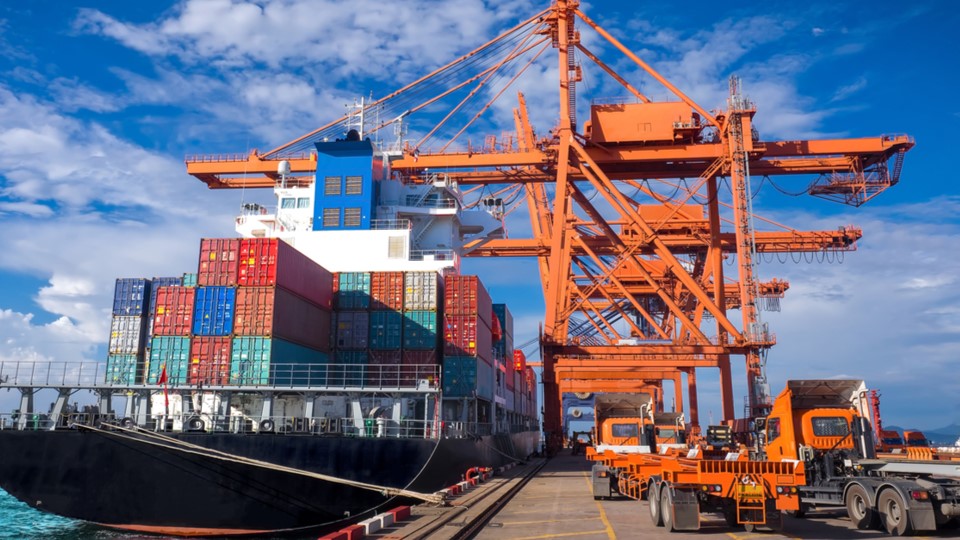SELA moves towards the institutionalisation of digital ports in Latin America
October 31, 2022
author: HTTPS://EFE.COM/

The Latin American and Caribbean Economic System (SELA), as an integration organisation, is focused on the institutionalisation and digitalisation of the region's ports, for which it looks for common positions among the countries, an objective in which it has experienced notable progress in the last year.
Following the election of the current Permanent Secretary of SELA, Ambassador Clarems Endara, the search for institutionalisation has led to the creation of the Action Committee of the Network of Digital and Collaborative Ports, in charge of conducting studies and designing options to promote the participation of public and private entities and to encourage cooperation among Member States.
The committee also works to find points of convergence to adopt joint positions that are of interest to several nations, with common economic and commercial objectives, according to the profile of each State, regardless of ideological reasons.
Since its creation, this committee has been responsible for explaining the importance of dialogue, participation and joint collaboration in the Ports Network, in order to achieve a commercial and productive benefit, both nationally and regionally, which benefits the economy of all the actors in the chain.
NECESSARY INSTITUTIONALISATION
SELA, aware of the legal and bureaucratic complexity, intends to “generate an institutional framework so that the Ports Network can start to move on its own in the areas of digitalisation, modernisation and training” and to handle procedures that usually require a long and difficult process, Endara explained to EFE.
The aim is to simplify work and administrative hurdles, as well as to reduce time, thus achieving greater efficiency that will have an impact on cost reduction and, therefore, on the final benefits.
The institutionalisation of the Network also aims to remedy the "disorganisation" in the port community which, according to the Permanent Secretary of SELA, was accentuated with the arrival of the covid-19 pandemic, which forced improvisation, regardless of the regulations of higher institutions.
To overcome all these obstacles and prepare for unforeseen events, such as the outbreak of the pandemic, the actors are working on the constitution and creation of their own regulatory statutes that provide the independence and autonomy necessary to save time and resources.
Endara said that SELA will provide support with "budgetary assistance" from CAF-development bank of Latin America (CAF) and will offer technical advice in order to achieve institutionalisation, which also implies having its own forum in which the public sphere, as a regulatory body, and the private sphere, as an operator, have a place.
IN SEARCH OF THE PERFECT PUBLIC-PRIVATE PARTNERSHIP
The regional body, which takes as a reference the best practices of European and Asian port communities, proposes the integration and coordination between public and private actors for the development of an efficient logistics chain.
To achieve this symbiosis, SELA advocates a regional forum that allows both to participate actively and to feel part of the project, on which they can freely debate and share ideas.
On the one hand, the public administration should be in charge of dictating the specific rules on how cargo is moved within a territory and what the mandatory bureaucratic procedures are, while on the private side there are the dealers, the owners of the goods and the carriers.
The reaffirmation of this “necessary” partnership is, along with the search for institutionalisation, what has marked SELA's project regarding the Ports Network in the last year.
With this need in mind, technical exchange mechanisms have been applied between the public and private sectors, and with specialists from ports in other continents, which have guided the region on where it should move forward in aspects such as trade facilitation, the structure of port communities and the inclusion of the “port-city” concept.
Once again, SELA resorts to integration when referring to the relationship, not always easy, between port and city, so that the dichotomy that, a priori, exists between one environment and the other can be reversed. And here too, the public and private spheres must be actively involved.
With all the options on the table, it is up to each country to choose which model best suits its system: public, private, or mixed.
GOAL: MORE PRODUCTIVITY AND QUALITY OF SERVICE
With the pursuit of institutionalisation and public-private symbiosis, as well as the path towards digitalisation and modernisation of communications and facilities of the port community, SELA's ultimate goal is to increase productivity and quality of services and for this to be reflected in the economy of the States and the private sector.
All these elements will improve the flows of cargo, information, service orders and international trade documentation from origin to destination in an efficient manner, and minimise total costs, impacting all actors in the chain, from producer to receiver, operators and carriers.
And for everything to flow in this direction, it is important that more and more Latin American and Caribbean countries are “convinced that it is necessary to work in this direction.” So far, 14 States - with their 28 port communities - are fully aligned with SELA's proposal, and it is hoped that others will join the list and take advantage of what the organisation has to offer.
In short, SELA brings to the table training, information, facilitation of procedures, technical cooperation, exchange mediation, dialogue, ideas, and options already evaluated in port communities in other latitudes, and each State selects and keeps what it considers most appropriate to its profile and, at the same time, shares what it believes can be of use to others.
The integration organisation is clear: there is no one-size-fits-all trade rule, since each country has its own policies, legal elements and particular territoriality, which SELA will not influence, but it will provide the fundamental elements for each one to decide what is best for them.